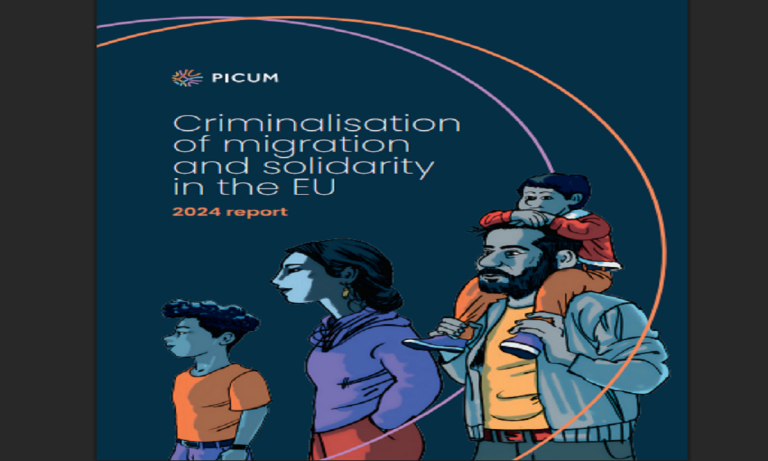Brussels – While headlines focused on big numbers in PICUM’s latest report — 142 people criminalised for helping migrants in 2024 — a closer read reveals something far more alarming. Buried behind those statistics is a growing pattern of fear, silence, and targeted punishment against those standing up for human dignity in Europe.
Published by the Platform for International Cooperation on Undocumented Migrants (PICUM), the report sheds light on how EU governments are turning solidarity into a crime. But it’s not just the numbers that matter — it’s the quiet erosion of basic rights happening beneath the radar.
A Decade Under Legal Fire
Take this: a woman in Italy spent nearly ten years under criminal investigation for buying train tickets for Syrian refugees. Her case was only closed in 2024. And she’s not alone. Of the 142 cases PICUM tracked in 2024, only two ended in convictions. The rest? Long, drawn-out legal battles that drain resources and break spirits.
This isn’t about enforcing law and order. It’s about sending a message: help a migrant, and you might pay the price.
Locking Up the Vulnerable
Here’s a detail most news outlets missed: two-thirds of migrants facing criminalisation were put behind bars even before trial. That’s right — pre-trial detention is increasingly being used not for justice, but for deterrence. Meanwhile, EU nationals criminalised for solidarity work are rarely jailed before a verdict is reached. The double standard couldn’t be more clear.
Harassed for Doing the Right Thing
Not all harassment makes it to the courtroom. Many activists say they’re being watched, followed, or intimidated. Some receive anonymous threats. Others face smear campaigns. It’s non-judicial, but just as effective in creating a climate of fear. The goal? To isolate and silence those defending migrants’ rights.
Women on the Frontline — and in the Crosshairs
The report also highlights a disturbing trend: women human rights defenders face a different kind of backlash. It’s not just about their activism — it’s about their gender. Many face gendered threats and online abuse that combine xenophobia with misogyny. In the words of one activist: “They want to scare us twice — once for helping, and once for being women.”
The Hidden Numbers
Perhaps the most dangerous thing? We don’t really know how deep this goes. EU member states aren’t reporting complete data on who is being charged, detained, or convicted. The result is a fog of statistics — and a growing problem that’s easier to ignore.




